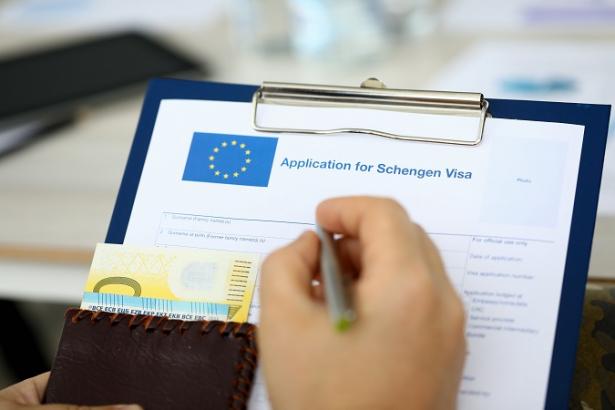How long is a Schengen visa valid?
Learn about the validity of short or long stay Schengen visas and the consequences of overstaying.

How long is a Schengen visa valid?
Short stay (type C) Schengen visas are valid for 90 days, but long stay (type D) visas range from 6 months to 5 years. Learn about the differences and risks of overstaying your Schengen visa below.
Type C (short stays) - 90 days
Short stay (type C) Schengen visas allow you to travel within the Schengen Area for a maximum of 90 days (3 months) for the following reasons: tourism, business, family visit, short educational programme, internship and carrying out a paid activity.
Depending on the reason for travel and your situation, the type C Schengen visa is granted for single, double or multiple entries.
- The single entry Schengen visa authorises a single trip to the Schengen Area with a limit of 90 days on site. The validity of the Schengen visa corresponds to the dates indicated in the application.
- The double or multiple entry Schengen visa (circulation visa) allows for several trips up to 90 days in length over periods of 180 days maximum.
The duration of stay within the Schengen Area is always 90 days for the type C Schengen visa, but the validity of the Schengen visa itself may change. For double or multiple entry (circulation visa) Schengen visas, the validity of the visa ranges from 6 months to 5 years. The holder may travel one or several times for up to 90 days over a 180-day period. The validity of the Schengen visa is indicated on the visa attached to the traveller’s passport. It depends on the reasons for your trip to the Schengen Area, your situation and whether or not you have respected your previous visas.
Type D (long stays) - 4 to 12 months
Long stay (type D) Schengen visas are all valid between 4 and 12 months. There is no 90-day limit. The validity of the Schengen visa is the same as the authorised trip duration. Depending on the reason for travel and length of stay, there are several kinds:
- Long-stay visa equivalent to a residency permit (VLS-TS). Valid 4 to 12 months, this long-stay visa is for students, employees with a permanent contract, spouses of French citizens, talent passports.
- The long-stay visa with obligation to “apply for a residence permit within 2 months upon arrival” authorises the holder to enter France in order to do the necessary paperwork to obtain a residency permit at the prefecture. The duration of stay in the Schengen Area is then determined by the validity of the residency permit. This visa applies to family members of French citizens, independent or liberal professions, workers or family members of workers, retirees or spouses of retirees and artists.
- The working holiday visa. Valid 1 year, the working holiday visa is for foreign citizens from countries that have signed a bilateral accord with France and would like to tour the country while working.
- The school-going minor visa in France. Valid 11 months, this type of Schengen visa concerns individuals under the age of 18 that will attend school in France for more than 3 months and whose parents live abroad.
- The temporary long-stay visa. Valid 4 to 6 months, the temporary long-stay visa can be granted to visitors who wish to enrol in a short educational programme, work as an artist or simply stay in France (with their existing resources only).
What are the consequences of overstaying a Schengen visa?
If you do not leave the Schengen Area at the end of the validity of your Schengen visa, you risk paying a fine and/or being identified upon exiting France. This identification is not without consequences for your future trips to the Schengen Area.
Do not forget that a Schengen visa is not automatically granted. The competent authorities of the Schengen country you are travelling to will assess your application and take into account the previous visas you have been granted and any overstays. If you do not adhere to the validity of a Schengen visa, you risk a refusal for your future Schengen visa applications.
Can you extend a Schengen visa?
Yes, the validity and/or length of stay (90 days maximum) granted by the Schengen visa can be extended. You must apply with the competent authorities before the end of the validity period of the visa and/or before the end of 90 days on site. In France, you must apply at the prefecture, but be careful, the competent authorities vary from one Schengen Area country to the other.
If you want your Schengen visa extended, you must prove a compelling reason that you could not have anticipated when you obtained your Schengen visa. The competent authorities will decide if your compelling reason qualifies as force majeure (an event that took place during your trip to the Schengen Area that prevents you from leaving) or affect you personally. Personal reasons include:
- professional reasons: unplanned event. Proof: employer letter.
- medical reasons: illness and/or unplanned treatment that proves that the patient cannot travel. Proof: medical certificate from a hospital specifying the number of days requested.
- family reasons: serious family events. Proof: proof of relation, death certificate of the parent or medical certificate proving that the illness is serious and the applicant is needed in France or a medical certificate or document proving the accident, its consequences and that the applicant is needed in France.
